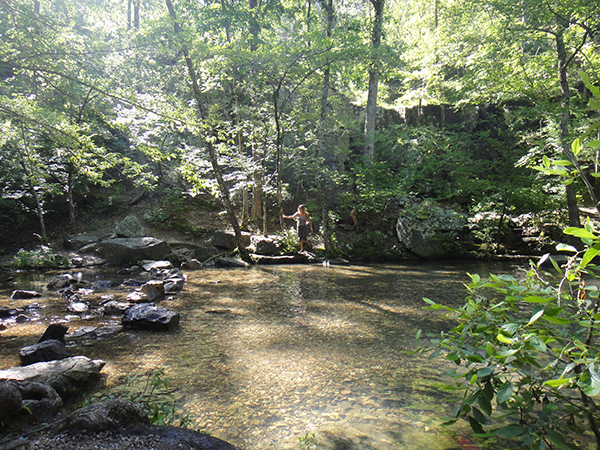Since Eastern Hellbenders are particularly sensitive to water quality and sedimentation, it was imperative that we address landscape-scale conservation to ensure successful reintroductions. With the help of 14 partnering organizations across Indiana and the Midwestern region, Purdue sought funding for these conservation efforts through the Regional Conservation Partnership Program (RCPP) administered by the Natural Resources Conservation Service (NRCS) under the U.S. Department of Agriculture. These efforts were awarded with nearly $2.7 million in funding for the Blue River-Sinking Watershed, marking the start of the 3-year project “Farmers Helping Hellbenders.”
The project objectives include improving Hellbender habitat by implementing conservation practices that reduce erosion and agricultural runoff, and benefitting local farming operations through increased soil retention and nutrient availability. The same suite of conservation practices that are available through other Farm bill programs like the Environmental Quality Incentives Program (EQIP) are also offered for applicants of Farmers Helping Hellbenders. Through this initiative, special consideration is given to applications that include practices that prevent and/or treat erosion or runoff such as cover crops, filter strips, and riparian buffers.
The success of the project will be evaluated by tracking acres and linear feet of stream protected, calculating sediment and nutrient load reductions, monitoring water quality in the watershed (led by the Indiana Department of Environmental Management), and assessing social and economic impacts.
